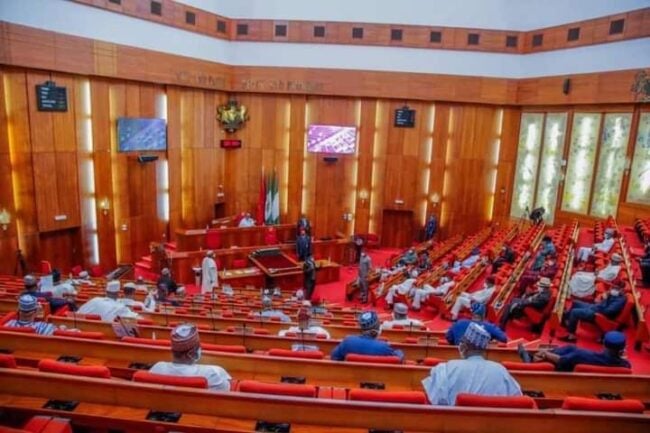The Lagos Chamber of Commerce and Industry (LCCI) says the federal government needs to replace the oil price benchmark in its annual budget with an index of key exportable primary goods as a means of widening the revenue base.
Toki Mabogunje, LCCI president, said this during a visit by a delegation of the Nigerian Institute of Policy and Strategic Studies (NIPSS) to the chamber on Monday.
In the 2020 approved budget, the benchmark oil price was $57 per barrel, however, in the revised budget it was reduced to $28 per barrel; while in the 2021 budget, the benchmark oil price is $40 per barrel.
Mabogunje said since independence, Nigeria has been involved in the creation of national development plans to align government actions and programmes with specific national outcomes.
Advertisement
“One of the major shortcomings of leadership in both public and private sectors is the quality of strategy and programme implementation. This has significant implications for policy and strategy outcomes.
“Most often, strategies and programmes are excellent on paper but translating such programmes into concrete outcomes are often very big issues.
“We are generally not short of programme strategies and excellent policy documents, but implementation has always been the bane.
Advertisement
“The specifications on government revenue sources, institutional and regulatory frameworks sustained by government’s spending, and the projects set out in the yearly budgets indicate the commitment of the government to financing subsisting national development plans.
“Fiscal policy remains fixated on oil, contradicting government’s often-repeated goal of broadening its revenue base.
“As a solution, the government needs to replace the oil price benchmark with a weighted average price, or a composite price index, of key exportable primary, semi-finished and finished goods.”
Mabogunje further explained that this would serve as a robust indicator that would be more resilient to external shocks than just crude oil price while broadening the focus of economic policy and ensuring sectoral development.
Advertisement
Add a comment






